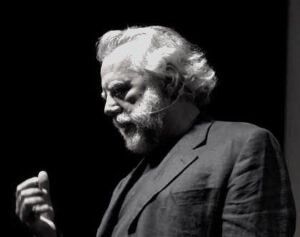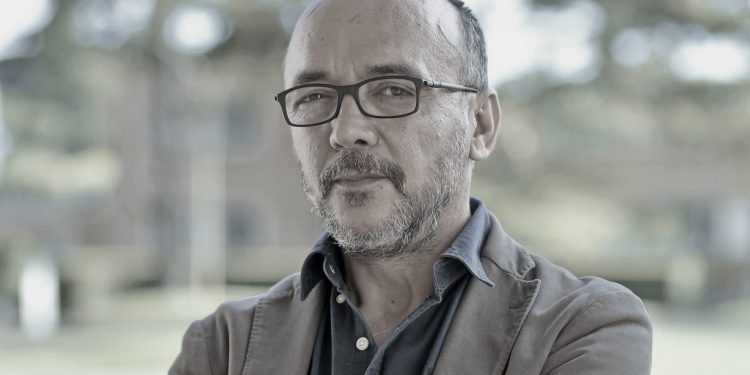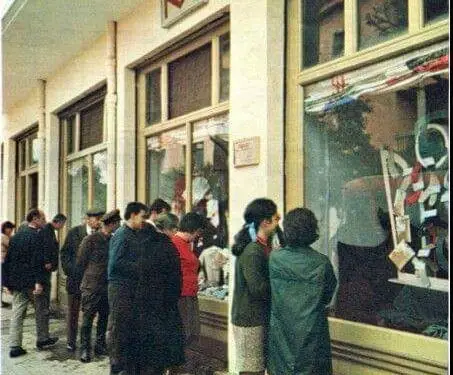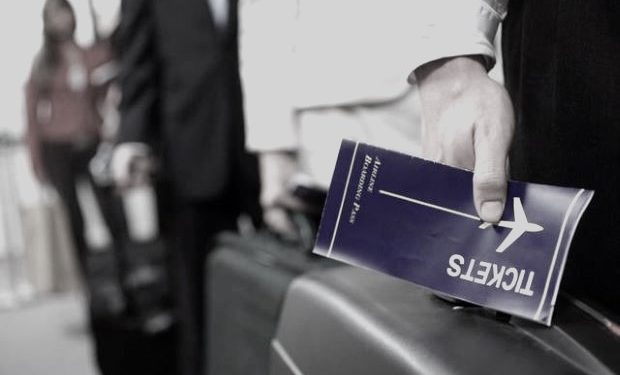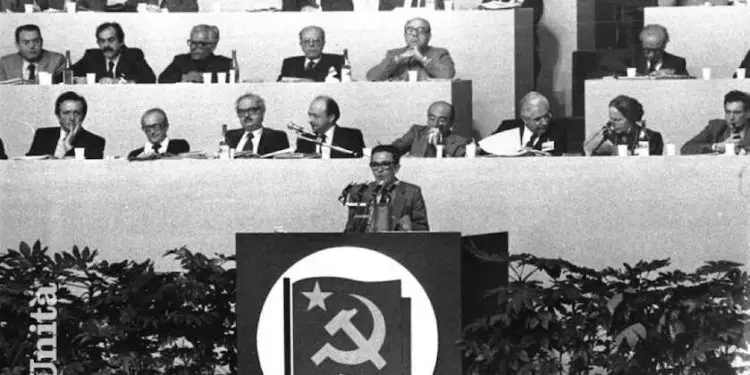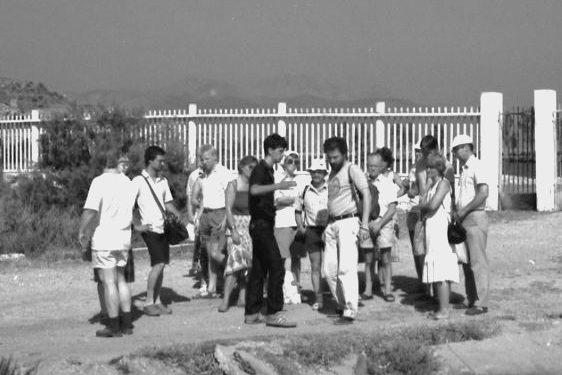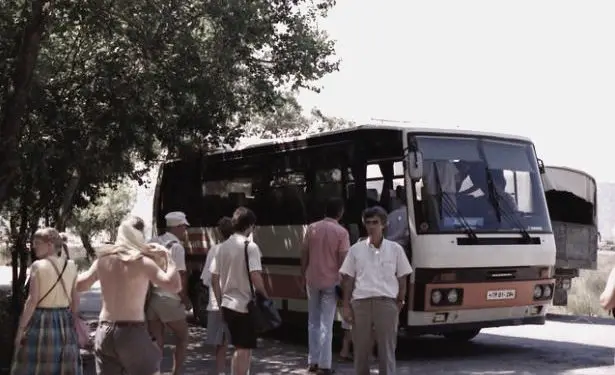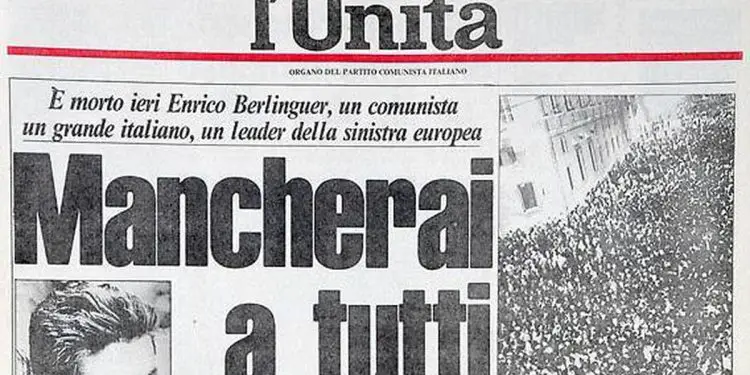Roland Sejko interviewed
Memorie.al / “Unyielding Stalinists of the whole world, unite. Admirers of the dictatorship of the proletariat, indomitable Marxist-Leninists (with a hyphen in the middle), fighters of Soviet revisionism, and fundamentalists of the Italian Communist Party. All in Albania. To see the achievements of purified Marxism and peeled Stalinism”. The famous Italian cartoonist, Sergio Staino, Bobo’s father, the critical voice of the left on the pages of ‘Unita’ and dozens of Italian newspapers, tells how from 1968 to 1978, he accompanied radical Italian communist groups in socialist Albania . “Our communist group, the so-called black line, was the only one that recognized Enver Hoxha as the leader of communism in Europe. As a reward, even Enver Hoxha only recognized us as interlocutors in Italy” confesses Staino, today a repentant Marxist. “All others, from Berlinguer and below, to the most extreme extra-parliamentary groups, were not called trusted”.
As a trustee, Staino organized the stay of Marxist pilgrims who wanted to touch the wonders of Albanian socialism with their hands. Every year the same program, departure by ferry from Bari, arrival in Budva, Montenegro, bus to the Albanian border, which was crossed on foot, with suitcases in hand, along the two kilometers of the border belt, the no-man’s land that separated Albania with Yugoslavia. And then the triumphal entry into the promised land, accompanied visits to factories and factories, courses on Hoxha’s theoretical thinking, meetings with high officials, cultural itineraries.
At the end of the summer, the pilgrims returned and started their revolutionary activity in Italy in anticipation of the next summer of the communist internship. “It took me years to understand what I had fallen into,” Staino says today, expelled from Albania in 1978 never to return. Returning to Italy that year, he would invent his most important cartoon character, Bobo, alive and well today as ever, with his satirical barbs every day, on the front pages of ‘L’Unita’ -‘s.
Mr. Staino, you have touched with your hand the deception on which the communist system was built. Starting with the way you were presented at party meetings: you were “the cartoonist who makes the bourgeoisie tremble”?!
Eh, yes. Information in Albania was a special thing. They invented all the news that they gave to feed the people. Once, I even found a newspaper, where to show the crisis that was always highlighted in the Western capitalist system, they had published as a current photo, that is, in the 70s, a very famous photo that everyone knows, of people in queues , in New York in 1929, at the time of the Great Depression. A thing from 1929 was sold as if it had happened 50 years later. I was no exception to this kind of logic.
The party nomenclature needed to present its international relations to the people, and thus I had turned into a caricaturist, who every morning made the bourgeoisie shiver, pencil in hand. Mind you, I published my cartoons from time to time, in a newspaper called “Nuova Unità” that came out once a week, not daily, and was read by at best 1000 people, so imagine the fear the bourgeoisie had me!
You were an Italian communist. Why did you go to socialist Albania? What did you expect to find?
I connected with Albania during the crisis with the Italian Communist Party, because I, like many other young people, (and not only young people), did not look favorably on the revisionism that had started within the Communist Party, for Marxist-Leninist principles, and about their implementation, especially in the Soviet Union. Defending the validity of the Marxist-Leninist and Stalinist ideology, against an implementation that objectively left much to be desired.
The two parties that arose at the international level against this revisionism, which permeated the entire communist movement, were the Chinese Communist Party and the Albanian Labor Party. We were all swept up in the Philo-Chinese wave, because of course it was the biggest, most important party, and from the point of view of the publicist product, it was the most present at our tables. But Albania had the advantage of being closer to us.
So it seemed appropriate at that moment to improve relations with the true Italian revolutionaries, who were most convinced of the split of the orthodox Communist Party, and the formation of a new party, to return to its healthy Stalinist strand. The division of the year ’66, was a division sponsored by Tirana, by Enver Hoxha personally. I joined this party in 1969, and for almost ten years of my life, I was a very passionate militant, amidst countless contradictions, so it took me a long time to understand what kind of vortex I had entered.
You said that the division of 1966 was directed by Hoxha, by the Albanian communists, within the Italian party?
Yes! That’s how it happened. They were the ones who pushed the hardest for this crack. They were the ones who pointed out the division the most, immediately invited the leaders of the party in Albania, honored them, and a personal friendship was born between our secretary, who was called Fosco Dinucci, and Enver Hoxha himself.
How was a typical visit of a Marxist-Leninist party delegation to Albania?
The first time in socialist Albania, I went with a small delegation, we were four Italians, four leaders of the Italy-Albania association. We arrived by plane from Bari, on a Bari-Tirana flight, with a “Foker” that performed this service. We were welcomed in a quite calm and traditional way by the leaders of the Ministry of Foreign Affairs, they took us to the most beautiful hotel in Tirana, which was a hotel built by Ciano, during the Italian occupation, Hotel “Dajti”.
I remember they took us to see artistic, archeological things like Roman ruins, etc. What I noticed, it always happened like this, was the difficulty of getting in touch with ordinary people, a difficulty dictated by the fact that it seemed that no one spoke Italian. Later I found out that most of them spoke Italian and secretly watched Italian TV, but they didn’t pretend to know Italian, so as not to create problems with the secret police (State Security).
What struck you the most in your first arrivals in Albania?
One thing that really impressed me: visiting the country, in some cities I was spat on, and I did not understand why. My companions apologized to me and explained to me that some young people did not understand why I wore a beard, since in Albania, there had been a big campaign against bourgeois degeneration, which also went through the beard. She was seen as something typical of Orthodox and Muslim priests, who were outlawed in Albania, because Albania was the first atheist country. So there were such confusions, so I was asked to forgive them.
The situation was different when I went overland to accompany some groups in Albania, coming from Yugoslavia. It was a strange thing because before you were mistreated by the Yugoslavs when they found out that you had to go to Albania. In Montenegro, they stole things, dragged us for bureaucratic reasons, in short, they treated us like we were stupid.
They told us: “What are you doing in Albania?! You deserve the abuse”! But after arriving in Albania, we had to camouflage ourselves. The arriving delegation, perhaps precisely in order not to repeat the misunderstanding I had because of the beard, should have an image that coincided with what the Albanian regime had built for the true revolutionary.
And how was this image presented?
There were banners in Albania showing how a degenerate microbourgeois should be distinguished. He had long hair, a beard, cowboy jeans, high heels, a saxophone in one hand and a revolver in the other. This was the typical portrait, so all those who would enter with friendly delegations should have nothing in common with those banners. In order to achieve this, we discovered that at the border, there was a military tailor, a military barber, who took one member of the delegation one by one and “re-dressed” them.
I shave my beard, but so do many others. Even a Neapolitan partisan returning to Albania to see the land he had fought for; even though they were merciless, they cut off his spiky beard, which he had kept all his life. Those who had cowboy pants, they cut them, narrowed them down, turning them into regular trousers. Women’s mini-skirts were lengthened. I have seen delegations of Swedish and Finnish Marxist-Leninists, with very long hair, as a sign of rebellion against Western rules, and when they arrived at the border they cut their hair zero, because they had to enter Albania as Marxist-Leninists, according to the Albanian style.
That was the expectation. Then there was a lot of control by the police, difficulties to walk around at will, to talk to people, and very, very disappointing when, in official speeches, you heard talk about certain principles that had nothing in common with Marxism-Leninism, on the contrary which often belonged to the circles of the most reactionary right, or even the Catholic Church.
For you, who were one of the few Westerners who managed to enter Albania, how can Albanian communism be defined in itself, from the point of view then and now?
Albanian communism, I discovered later, has made a strange mixture between the most dogmatic aspects of communist philosophy, i.e. the “Manifesto of the Communist Party” of Marx, and the thoughts of Lenin, and then those of Stalin, but merging them with that well-known medieval law of Lekë Dukagjin, which was in force in mountainous, rural and pastoral Albania, which was based mainly on inheritance and blood. This created a situation where the elements of an injustice were based on belonging to a certain family, on belonging to a certain genealogy.
This I think was the scariest thing that definitely created sad situations. Once I went to Albania with a friend, whose father was Albanian, born in 1943 in Albania, from an Italian mother and an Albanian father. In 1945, her mother had returned to Italy, because her father had disappeared, he had died, but no one knew how it had happened and where he had ended up. My friend was left wanting to find out who his father was, what he had done, and why he had died.
There was a doubt. His mother had never spoken to him about his father’s death, because he had become seriously ill, completely insane. So I helped him come with us, to find his roots. And the Albanians brutally informed us that his father had been the director of a very large agricultural enterprise in Durrës, under the fascist regime, that he had been shot by the partisans, after they had taken him from the enterprise at night. For this reason, my friend was told that his presence in Albania was an insult to all the martyrs of the revolution, and that he had to leave within 48 hours.
I tried to explain to them that he had nothing to do with his father, that he had fled Albania when he was only 2 years old, that he was a communist and was good, generous… but to no avail. The fact that he was the son of a fascist made him a fascist without the slightest doubt, and when I told them; “Look, this is not a fascist”, they answered me: “Then it means that he has rebelled against his blood, it means that he has betrayed his father, and as such, he cannot stay in Albania”. There was no way out, because there were two supporting pillars: ideology and genealogy, and even genealogy did not allow him to stay there.
What about you, the Western delegations, the “privileged” ones, let’s say, who could enter a country that was completely closed, did it ever occur to you that what was built in Albania was a dictatorship?
It was a dictatorship, we knew. We also theorized it because we accepted the dictatorship of the proletariat. But in time I realized, I decided to come out of the vortex and denounce, that it was not a dictatorship of the proletariat, – if such a one could exist, personally I no longer believe that such a thing is possible. I hope that no one else will try to build it again, because this dictatorship of the proletariat was completely compatible with any kind of police state, that is, a police state in the service of a small group of leaders, who held political and economic power, and used it in threatening manner, with all the typical means of police repression.
This police oppression was seen, especially, in the presence of the Security that was practically everywhere. Have you had the opportunity to feel it, around you or in other people?
It is the saddest thing about socialist countries. It was felt in Albania, as it has been felt for years and to this day in Cuba. You could talk to people if you found them isolated in a quiet and safe moment, otherwise there was no possibility of dialogue because everything was controlled. But the most terrible thing was the disappearance of people. You knew someone who was maybe a writer or a poet, you befriended him, you talked to him, you met him again the next year, you noticed that he was not like everyone else, that he had his own ideas, that he had a brain that worked, that he had a kind of independent spirit …!
You came back the third year and it was gone. Question: Where did so-and-so go?! To answer: “Who? Who are you talking about”?! No one knew him anymore. What about So-and-so, Pistachio…?! To be answered: “Ah yes… maybe he was here, but maybe he left with work…”! But where? “We don’t know…”! They probably ended up in concentration camps, or they were eliminated, they were shot, and this was common, it happened in all communist countries.
So when even today someone defends what is left of the communist countries, starting with Cuba, my hair stands on end. The most ugly and negative thing about communism is the fact that it has caused injustice and terrible things to the population, as much as capitalism did in its initial phase. The exploitation of man practiced by communism is similar to what capitalism did in the 19th century, when it brought children into the mines, when it exploited people, making them work 14-16 hours a day.
With the difference that capitalism made in the name of enrichment, without ever hiding its goal, which was material enrichment. While communism did it in the name of social justice, love, brotherhood, solidarity. And the gross injustice practiced with this motto destroyed the spirit of the people.
Mr. Staino, when is a dictatorship born according to you, when is Stalinism born?
I have come to the conclusion that Stalinism is born at the moment when someone says that this and that happened, but that it is better not to know, since others can draw wrong conclusions, so it is better to hide the truth. This is the beginning of Stalinism. When I make a cartoon, it has happened to me in the past that someone has said to me: “this cartoon is true, but you better not do it, because it is not appropriate, politically”.
Then I get angry and decide to definitely do it, since there is no political opportunity in the information. Information must be free and complete. If something happens and I keep it hidden, because political opportunism advises me so, this is nothing but the beginning of Stalinism.
Stalinism in Albania, unlike that in other countries, could be seen and touched. And a Westerner who believed in Marxist theory, what impression did he have?
Stalinism was visible, tangible, but it was hidden because, as I said, we were so consumed by the desire to see something that answered the principles for which we were born, that we minimized all the signals that came to us as Stalinism. Someone even favored them. I painfully remember Myftar Vigan, I cried afterwards for him, a very dear person, who was our companion during the first visits. He was a simple man, who soon became a martyr of a society.
He did not feel very communist, so to speak, he liked to be in company, he was happy with a little. We arrived in Albania well dressed, with material goods that he lacked, so he was very pleased when someone gave him a pair of socks or a shirt. He accepted the gifts and thanked them with his heart, of course breaking an iron rule of the regime, which forced all the Albanian people not to accept any gifts from Westerners, since every Albanian must show that what he had was enough, he did not lack thing.
One day one of the members of the delegation, a certain Menegatti, denounced him. He went to the Albanians and said to them: “You know that our companion Myftar Vigani makes you ashamed, because he accepts gifts from people of the delegation, giving the impression that you are in need”?! Of course Myftari disappeared, he didn’t accompany us anymore. And I am ashamed, that it was a farce made by an Italian in our group…!
Did you notice that in Albania, apart from the cult of Stalin, another cult was raised, that of the dictator Enver Hoxha?
Enver Hoxha’s cult was at an unimaginable level. As I told you when I went to Albania, I had to remove my beard, and mind you, immediately afterwards the skin under the chin is somewhat pale and puffy. When I arrived in Albania, they told me that I resembled Enver Hoxha, it was a great compliment. In fact, I remember once, when I was in the maternity hospital in Tirana, all the doctors came up to me and said with a smile, “Ah! How much I look like Enver Hoxha”?!
Once again I “used” the resemblance to Enver. They took us to Elbasan, to see the Metallurgical Plant, which was the pride of the Albanian industry. At the restaurant, I asked to try the yogurt casserole, and they told me: “It’s not on the menu, but if you want, go to the kitchen and talk to the chef. Since you look like Enver Hoxha, you can hardly spoil the fun.” I went to the kitchen laughing and believing that they were making fun of me, but the cook in front of me remained open-mouthed: “Wow! Are you a copy of friend Enver”?! When I asked him if he would prepare that dish for us, he replied: “Of course! For Comrade Enver, the casserole with yogurt and whatever his heart desires”! And by this I mean that the cult of Enver Hoxha was so powerful that it was transmitted to those who resembled him.
As a close acquaintance of the dictatorship, can you say today that the communist regime in Albania was one of the most brutal in Eastern Europe?
I do not know this. From what I have read in Romania, Bulgaria and the Soviet Union itself, they have removed a lot. I am also unable to take stock of the fact that when discussing suffering, it is difficult to measure the degree of suffering. And in communist countries, there has been a lot of suffering and injustice, which causes me pain just to think about it, because consciously or unconsciously, we are also responsible for all these terrible things.
Perhaps if we had less desire to protect ideas and more scientific desire to truly understand reality, we could have denounced this a long time ago, or at least supported the activity of the Italian Communist Party, which in this respect has been quite brave. With Berlinguer, it is time to leave and denounce the many injustices.
Of course, I knew Albania closely, but it was not the reality that I loved the most. Like my entire generation, I fell in love with the revolution in Cuba, which was the only revolution we saw firsthand. Of course, it was wild, because of the way opponents were annihilated, how human rights were violated, how every form of dissent was suppressed, how absurd actions were justified, with political motivations. And how can you measure the degree of violence? I find it very difficult.
Mr. Staino, why did communism fail in all the countries where it tried to be built?
In reality, great injustices based on lies must fall sooner or later, as fascism, Nazism fell. I am more inclined to understand the reasons for fascism and Nazism, because they arise from the evil, cursed will of a small group, to exploit and have privileges from the oppression of the people. This is fascism and Nazism. And in order to do this, they don’t hide it, they say it openly: “We are a superior race, we must build a superior world, and for this we need to use and eliminate all those who hinder us, in the realization of this ideas”. It is open savagery.
In socialism it is not like that, the same ferocity and the same objectives of interests of a group are hidden behind slogans of solidarity. I consider it a great fate, the fall of the communist systems, but I think that the damages caused have not yet ended, on the contrary, the damages of communism will condition the development of society around the world for a long time. I say this considering China, the Soviet Union, all those political forces in today’s Europe, who still believe in communism, who keep it as a characteristic element of their ideas. I think we have to deeply re-think everything, precisely in the name of those values that, through communism, we wanted to bring to life.
Staino, more than a designer…?!
Sergio Staino, is much more than a simple vignette artist. Graduated in architecture, Staino has collaborated with the most important Italian newspapers, and is the founder of the satirical newspaper “Tango”. In the 80s, he collaborates with television with the famous Drive In shows, while in 1993 RAI directs “Cielito Lindo”, preceding what would become Zelig. He cooperates with various theaters, for a long time he was the artistic director of the “Puccini” Theater in Florence and of the great activity; Estate Fiorentina. He is simultaneously the director of two feature films; “Cavalli si nasce” and “Non chiaarmi Omar”. Memorie.al




